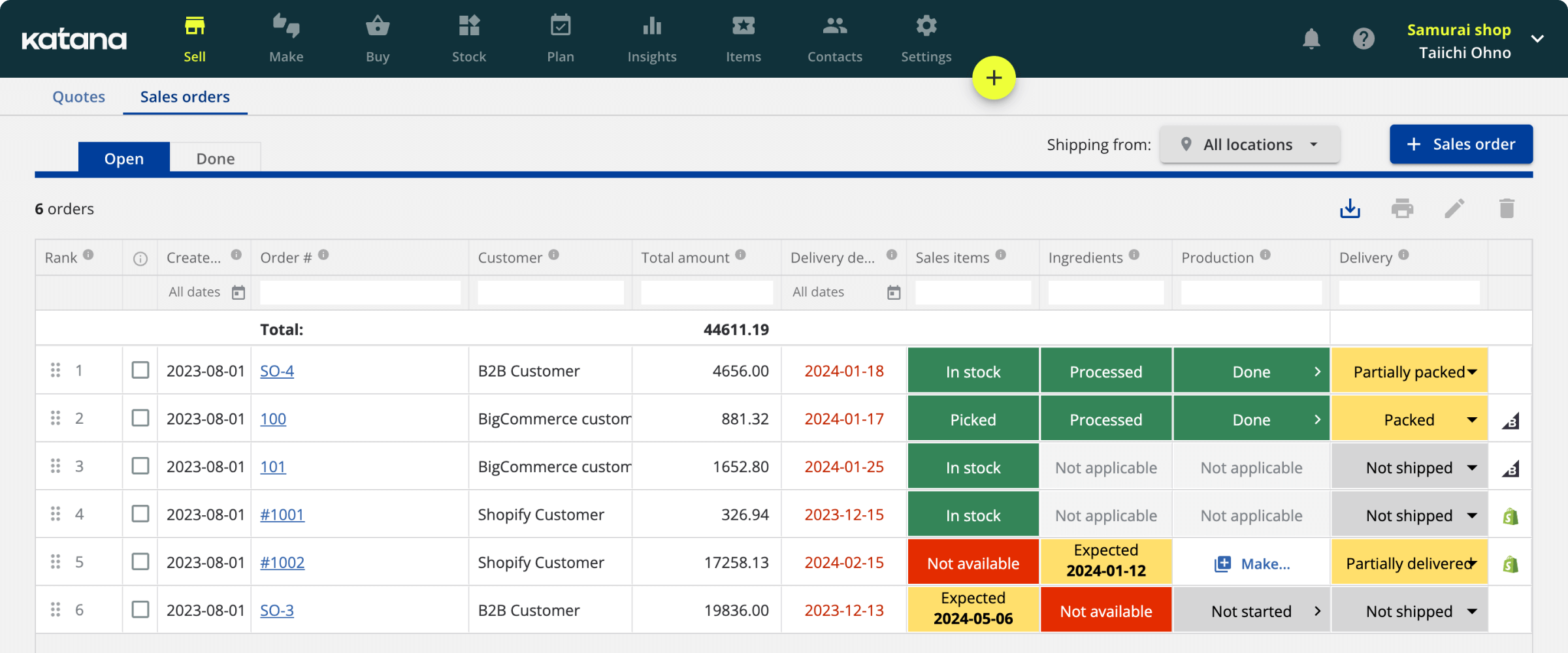Food traceability: Why it’s essential for food production
Food traceability systems are essential for tracking inventory and identifying issues on your production line. Here are the reasons why your business needs it.
Team Katana
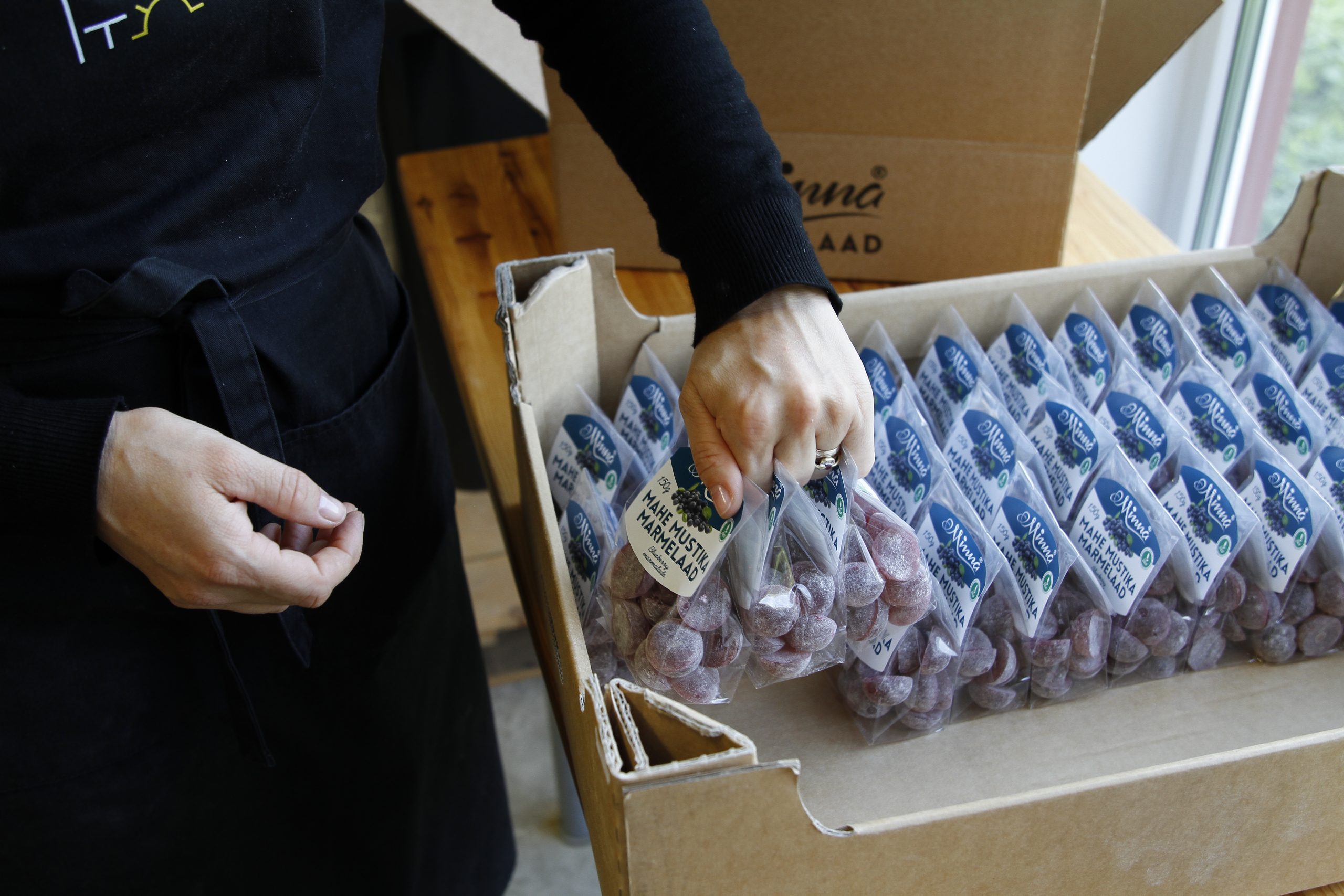
Food traceability is not only going to be a massive benefit to your business, but a good system will give you the tools to easily perform product recalls. In this article, we look into why food traceability is important and how you can get implemented with a system.
Traceability is the ability to track the movement of your items, forward and backward, across your food production supply chain.
Upgrading your food traceability processes will allow you to:
- Improve inventory management;
- Be compliant; and
- Maintain a positive brand image.
Download the Ultimate Shopify Selling Ebook for Manufacturers
See how successful Shopify sellers streamline their sales through manufacturing — for free.
What Are Food Traceability Systems?
Food traceability systems are tools that help you record, track, and verify a product’s history, and the location it has reached through your supply chain.
Food traceability will allow you to monitor your perishable inventory, giving you the tools to keep your business compliant and to perform product recalls.
The best food traceability systems will help you easily find information about the raw materials used in a product (be that for a batch or individual ingredient) and the manufacturing route of your products.
Product traceability is used in other industries too, such as:
- Pharmaceuticals
- Coffee manufacturing
- Cosmetic manufacturing
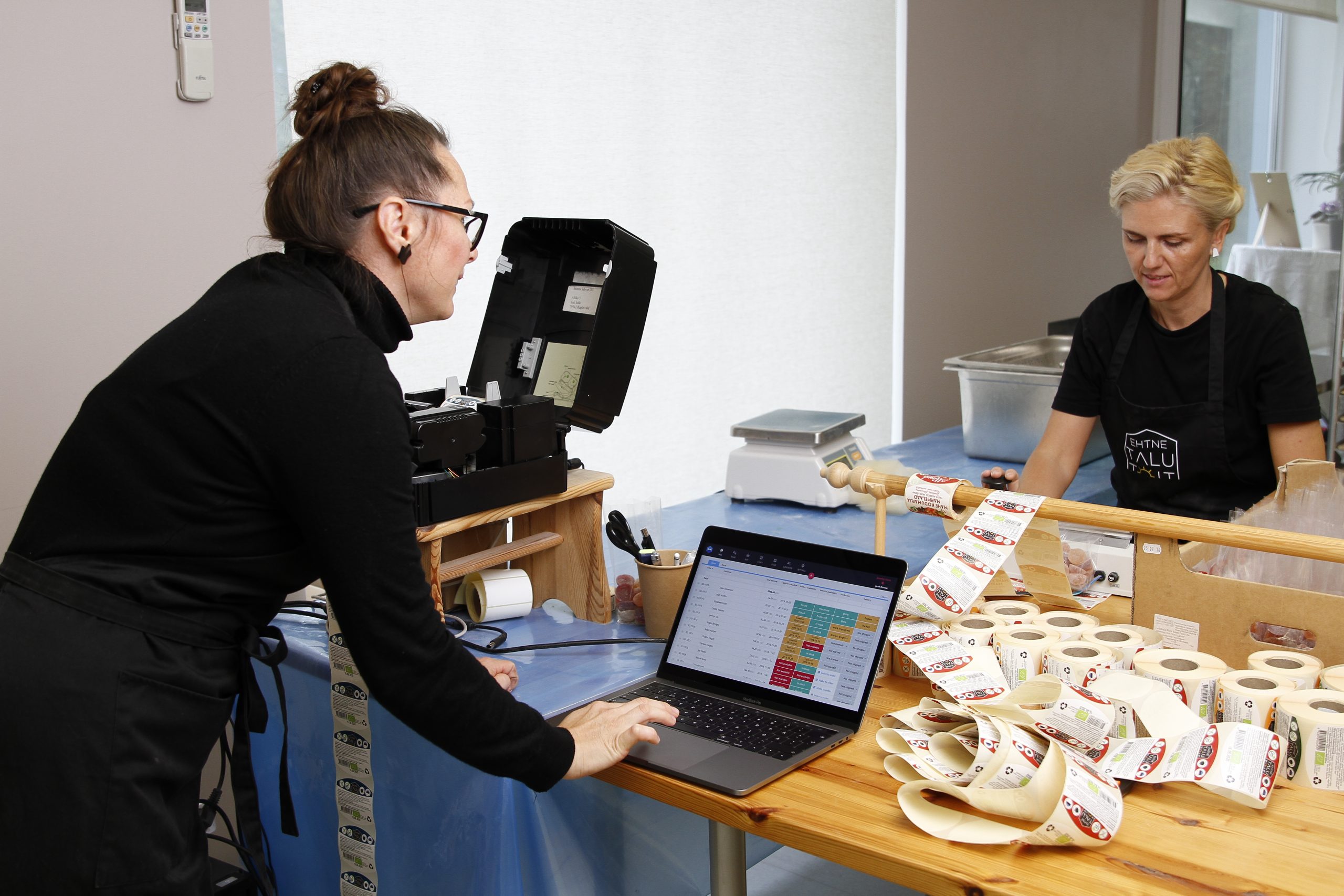
Why Are Food Traceability Systems Important?
Besides the immediate benefits of improving your inventory management with a clearer overview of an item’s movement, there are other important reasons (and benefits) to implementing food traceability.
Getting your business set up with food traceability systems is important for:
1. Traceability Food Safety
Having the systems in place will allow you to implement a food traceability procedure, in the event a product or batch becomes contaminated, and you need to track down those products.
A system will help you determine where the contamination took place. For example, you can uncover if it happened because of:
- An issue with the supplier;
- A faulty machine; or
- Improper handling of items by an employee.
Food traceability systems are focused on public health and helping manufacturers avoid or deal with an outbreak of foodborne illnesses.
With a proper food traceability procedure in place, you can avoid potentially affecting the public’s health, and the economic ramifications of contaminated products making it to the market.
2. Real-time food traceability
Following on from the previous point, let’s say something happens, and you need to locate a batch.
Food traceability systems will allow you to track batches with their batch numbers.
If products do become contaminated, you can be proactive, locate the affected items, and remove them from circulation.
Food traceability will allow you to analyze your manufacturing processes to see exactly where along your production line any issues are occurring.
And it doesn’t have to be all doom and gloom, it can be as simple as helping you identify bottlenecks in production.
Pro tip:
All manufacturers, from those in food production to artisan toymakers, need a system for monitoring their raw materials. That’s why we put together the ultimate guide for inventory management for manufacturers, so you can optimize your processes today.
3. Reducing Corrective Actions
Product traceability systems help you avoid problems altogether with real-time features.
But ultimately, recalls are common within the industry. In 2019, there were 337 food recalls in the US.
With food traceability in place, you can easily nip problems in the bud. But, if you do need to do a product recall, you can easily do so with the tools provided.
You’ll be able to determine which stores are selling your products and be compliant while performing your product recall.
4. Being Compliant with Regulations
A food traceability system is going to help you comply with regulations, as governments have laws in place to protect consumers, and will most likely require you to register your business.
And you’ll need a system in place that details:
- A products movement history;
- What processes the product went through; and
- Where your products are heading.
These are some of the reasons why manufacturers in food production need to have food traceability systems in place.
However, some systems do come with their own challenges that you’ll need to be aware of.
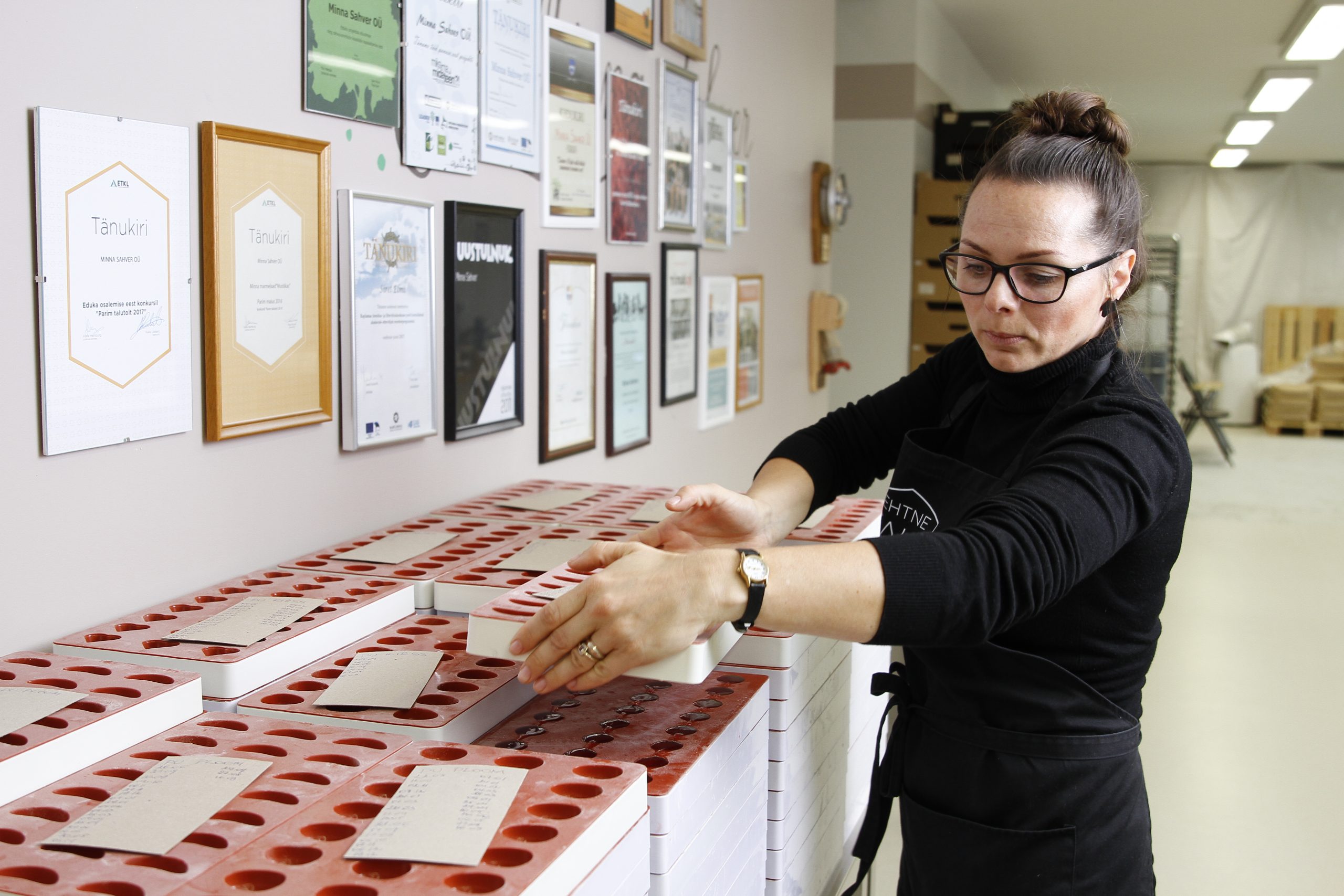
The Challenges with Using Food Traceability Systems
These challenges won’t apply to all systems, but you need to be aware of potential issues when you’re looking for food traceability.
1. The High Maintenance Cost
Food traceability, especially with legacy systems, can be an expensive technology to implement into your business, even more so for small to medium-sized businesses.
These costs include things like the labor of installation because a lot of systems are custom built and hosted on an intranet for the business.
This is because food traceability has to be durable and handle the complexity of tracking products across all parts of your supply chain.
2. Difficult and Time-Consuming Data Analysis
Analyzing data with food traceability is more difficult for manufacturers with a high volume of products and raw material.
Managing data and analytics is one of the most challenging aspects when it comes to using food traceability.
The bigger your business, the more products, and suppliers you’ll need to manage, which could overwhelm you with data to analyze.
That’s why when implementing food traceability systems, it’s important to find a tool that can help you monitor your inventory and break down the information into something more digestible.
3. Consumer Trends
The latest manufacturing trends for customer spending habits show that they:
- Are more informed when shopping; and
- Want to shop with transparent manufacturers.
There was once a time where you could tap your nose and say that your recipe is a secret. But nowadays that’s not going to fly.
For health, ethical reasons, or peace of mind, customers want to know everything about your items, from what’s in there to where it came from.
Having a food traceability procedure in place will allow you to give them that information.
4. Strict Legal Regulation
As a manufacturer in the food production industry, you need to be compliant with your countries laws.
However, globalization means that you have the potential to trade pretty much anywhere around the world.
This means you need to be compliant with local, state, national, and international laws too, and the laws can be different from one another.
That’s why it’s essential to make sure your system complies with all the different regulations you need to follow when trading across states or internationally.
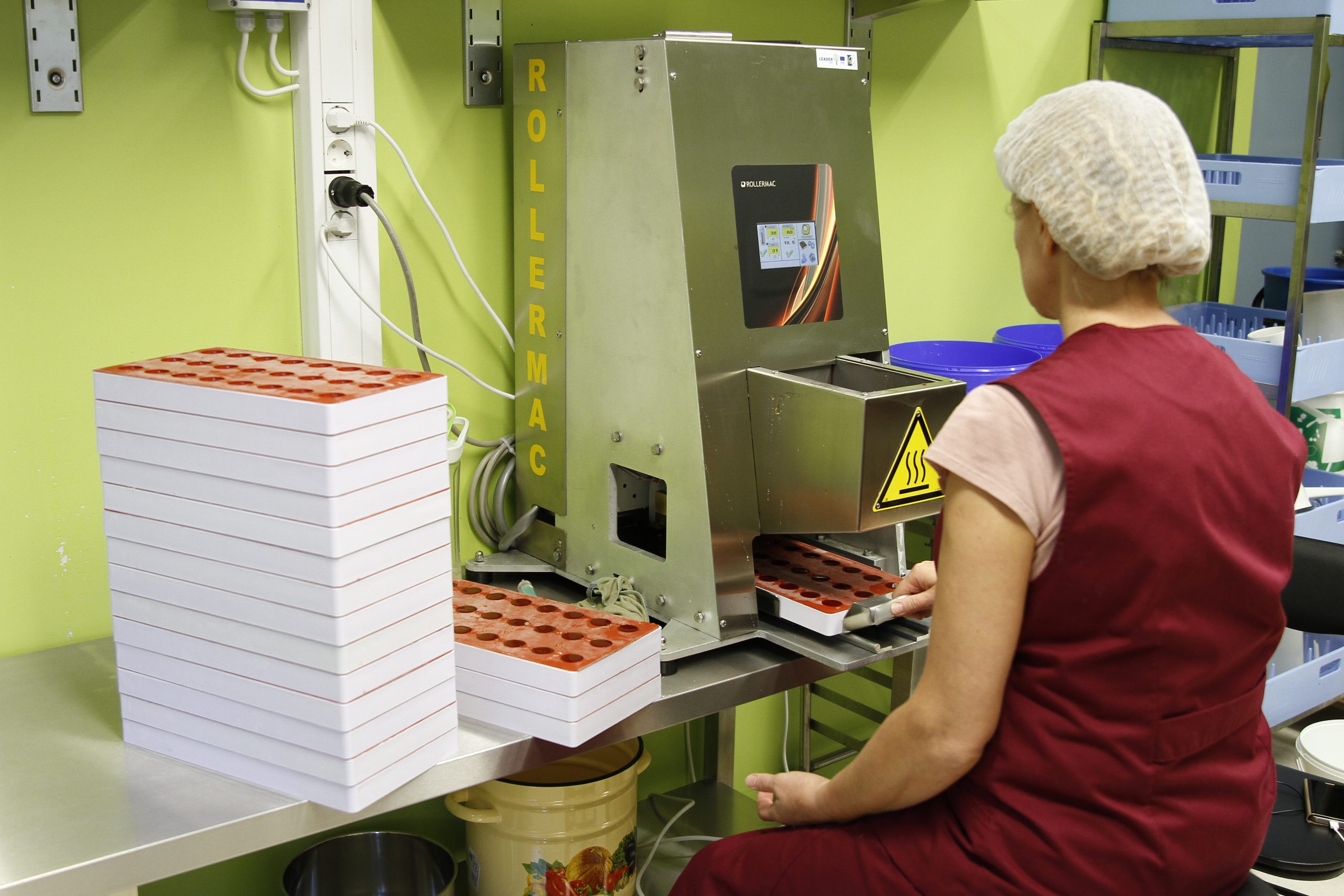
What to Look for When Looking into Food Traceability
You now understand how important it is to get yourself set up with food traceability and the challenges that come with implementing software.
So, what exactly should you look for when selecting a food traceability system?
1. Proper Documentation
When upgrading your traceability food safety, you need a tool that can collect and record all the proper documentation.
This includes:
- Contact details of all your suppliers;
- List of raw materials or ingredients that they provide you;
- Product information along with the quantity, origin, delivery, and expiry dates;
- Batch identification; and
- Contact details of customers and 3rd party sellers.
The information you’ll need to collect will all depend on the type of food product you sell and the size of your business.
But regardless, all this information will be essential in the event you need to do a product recall.
2. Efficient Finished Goods and Raw Material Management
Improving inventory management for any manufacturer is important, but for those handling perishable inventory, a good food inventory management system is a must.
A batch inventory management system will help you track all your items in real time, regardless of where they are along the food distribution route.
But, it doesn’t stop there, an inventory management system with food traceability will also allow you to:
- Reduce carrying costs;
- Avoid spoilage; and
- Avoid recalls by having an overview of your production to identify problems as they occur
Pro tip:
Improving raw material inventory management is essential when handling perishable items. Check out Cloud Inventory Software, which automates your inventory by allocating items to open sales and manufacturing orders.
3. Improve Response Times
Following on from the last point, with real-time analytics and by having a food traceability procedure in place, you’ll be able to act quickly if you need to do a product recall.
Batch tracking numbers provided by the food traceability system will allow you to easily locate batches and individual items using those specific numbers.
If any problems arise on your production line or you receive a customer complaint, you’ll be able to act swiftly.
4. Transparency and Honesty
This comes down to you more than it does the food traceability system you’re using.
A batch tracking system is going to give you all the data to analyze to see how efficiently your production lines are doing or if issues are occurring.
It’s what you do with this information that’s important.
Follow the proper food traceability procedure, notify the appropriate authorities, and let your customers know.
So, there’s what you should look out for when implementing food traceability. But where do you start when looking for a system.
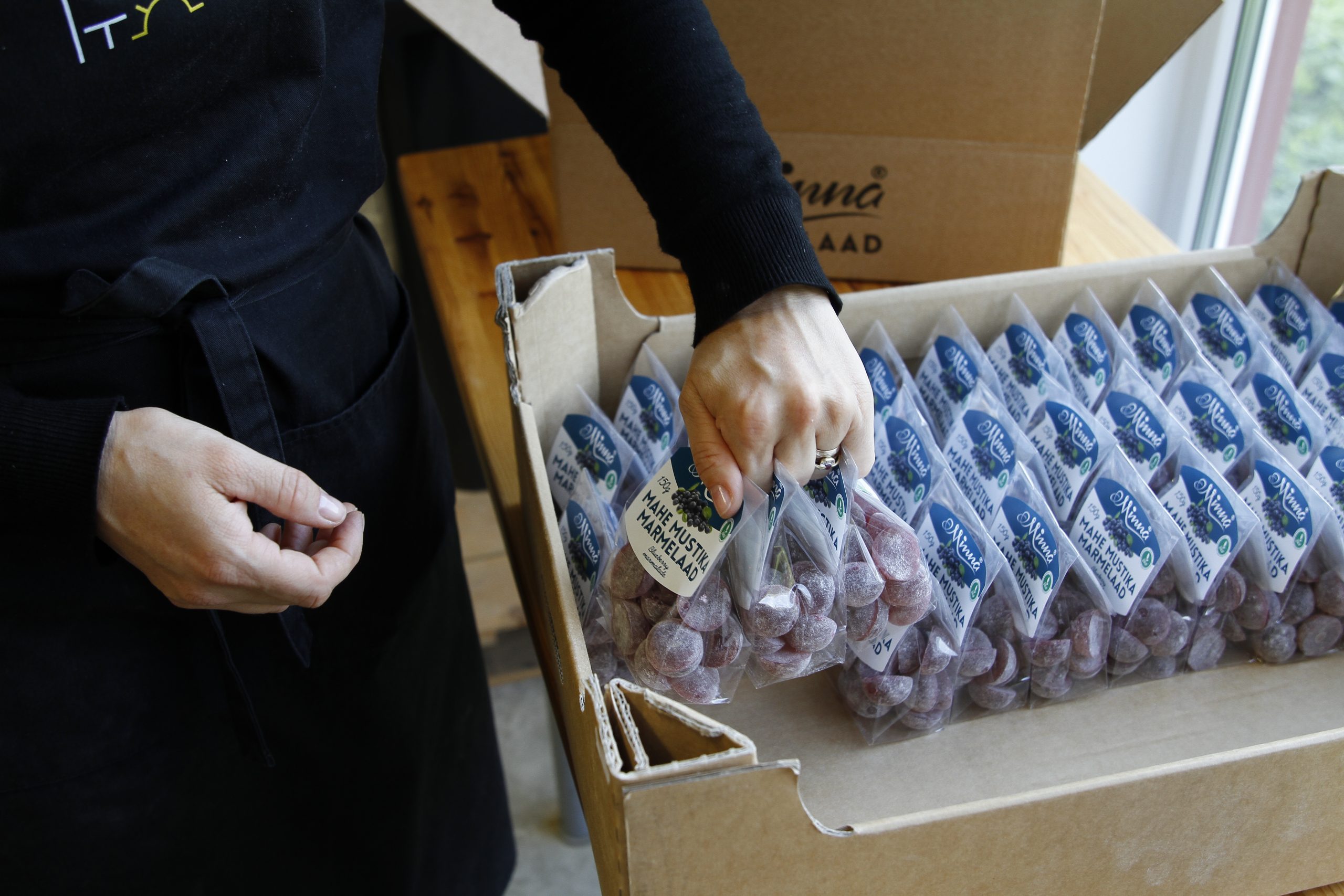
Katana Cloud Inventory Software for Food Traceability
Katana is an inexpensive all-in-one manufacturing tool for manufacturers, made by manufacturers, looking to get more control over their:
- Inventory;
- Production planning and scheduling; and
- Food traceability.
However, for those handling perishable inventory, Katana also provides users with food traceability, so they can stay on top of their food production.
Katana is perfect for those looking for:
- Batch/lot tracking and numbers;
- Expiration date tracking;
- Tracking your best before dates;
- Product traceability; and
- Product recall processes.
Katana uses the RAG (Red, Amber, and Green) system so you can easily understand the progress of deliveries, manufacturing, and sales.
Best of all, Katana can integrate with your favorite e-commerce platforms and accounting tools, allowing you to centralize your sales, manufacturing, and accounting, all on one dashboard.
An integration-combination that is quickly become the winning formula for D2C manufacturers.
Check out the video below to get a better understand of how Katana will help your business:
Team Katana
Table of contents
Get inventory trends, news, and tips every month
Get visibility over your sales and stock
Wave goodbye to uncertainty by using Katana Cloud Inventory for total inventory control
